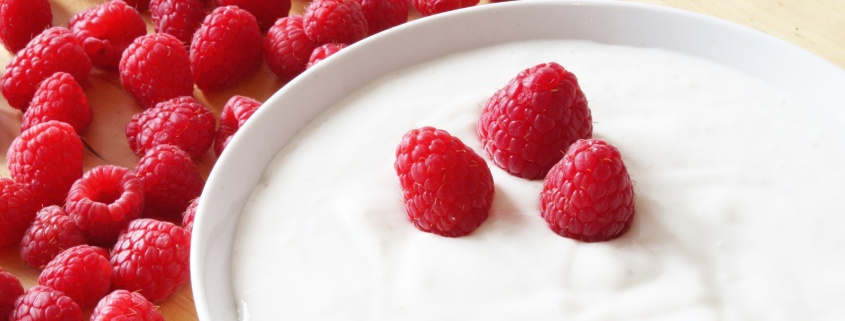What Do You Mean There Are Bugs in My Yogurt?
You walk around the supermarket and see a myriad of food products, each with numerous marketing labels claiming they are healthy for you. We’ve come to a time and age, in which large corporations are doing great convincing you that your child can get vitamin D from a box of cereal, you can get your B vitamins from bleached toast bread, or intake your calcium from pasteurized fruit juice.
Moreover, tons of additives and preservatives that can be spotted in popular food items are more harmful than you may possibly conceive. Take BHT for example, which can be found in the package lining of a widespread selection of cereals, crackers, and cookies. BHT is in fact, banned in the European countries and Japan, due to possible side effects, including insomnia, increased appetite, liver and kidney damage, cancer, and even fetal abnormalities. Another readily used ingredient is Trisodium phosphate. It’s a heavy-duty cleaner used to degrease walls prior to painting, and you can find it at a nearby supermarket in the painting section or at online retailers. On the same note, you can locate it in your child’s favorite cereal, and frankly, it’s rather toxic. Trisodium phosphate has been linked to liver damage, gastrointestinal discomfort, and irritation of the stomach lining.
Why would you possibly want to serve your child this for breakfast? Another ingredient that is quite surprising, is carmine. Carmine can be found in several yogurts, candies, or drinks, if they happen to have a purple or red color hue. While carmine is quite natural, it’s not the type of natural dye you may be delighted to consume; carmine is derived of crushed red scale beetles, cochineal, or Dactylopius coccus. Once they are crushed, they are boiled in an acidic solution. It has been linked to causing several health hazards, including allergic reactions, or hypersensitivity. It’s essential to be aware of these additives, and aim to keep them out of your shopping cart and pantries.
In an online webinar I’ve conducted last week for Al-Maghrib Institute’s latest online class, Complicated, some of the most reoccurring questions were related to food labels and these lethal ingredients. What does natural mean? How about organic? Where can you learn more about these ingredients put in food, and how can you avoid them?
Heavily processed food and fast-food companies are not always looking out for your health; it’s crucial that you become aware of the detrimental side effects they could have on your physical and mental well-being. I discuss many of these ingredients and consequent health concerns in my book, Sunnah Superfoods. First and foremost, if you’re a frequent fast-food eater, I’d advise that you get it out of your diet immediately. Fast-food items are almost all full of hydrogenated oils, unhealthy saturated fats, salt, sugar, and even countless preservatives your body simply can’t digest properly. Fast-food is nowhere near healthy, and could lead to various health conditions including but not limited to cardiovascular disease, difficulty concentrating, cognitive decline, obesity, diabetes, and high blood pressure.
Processed foods are not any better; they could contain many of the toxic ingredients I’ve just mentioned. When it comes to buying boxed or bagged food items, such as cereals, protein bars, frozen vegetables, pastas, and other items, try to look for the certified organic and Non-GMO Verified label. These labels ensure that there are no artificial dyes, harmful preservatives, hydrogenated oils, genetically modified ingredients, or artificial flavorings.
In sum, the less processed food you purchase and consume, the more likely you are to avoid these toxic ingredients. Several alternatives to these products, such as organic and clean-ingredient cereals, chemical-free protein bars, unbleached pastas, and more, can be found on my website, holisticnoortrition.com. Again, strive to consume more and more whole foods, avoid heavily-processed food, and ditch fast-food all together. With patience and effort, you’ll be on the path to wellness in no time.
Noor H. Salem is an author, speaker, and Certified Integrative Nutrition Health Coach, from Michigan. Noor works with clients in better understanding their bodies and healing with natural foods through her wellness practice, Holistic Noortrition. She presents various workshops, school lectures, group coaching classes, and community lectures on the topic of holistic health. Noor recently published her book, SUNNAH SUPERFOODS, a culmination of life-changing recipes and remedies, with a foreword by Dr. Waleed Basyouni. Her book consists of prophetic hadith, modern research, and delicious recipes, and is in the process of being translated into other languages.

















2017
983 views
views
0
comments